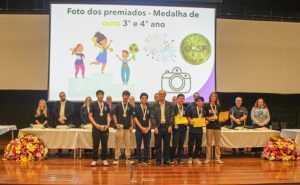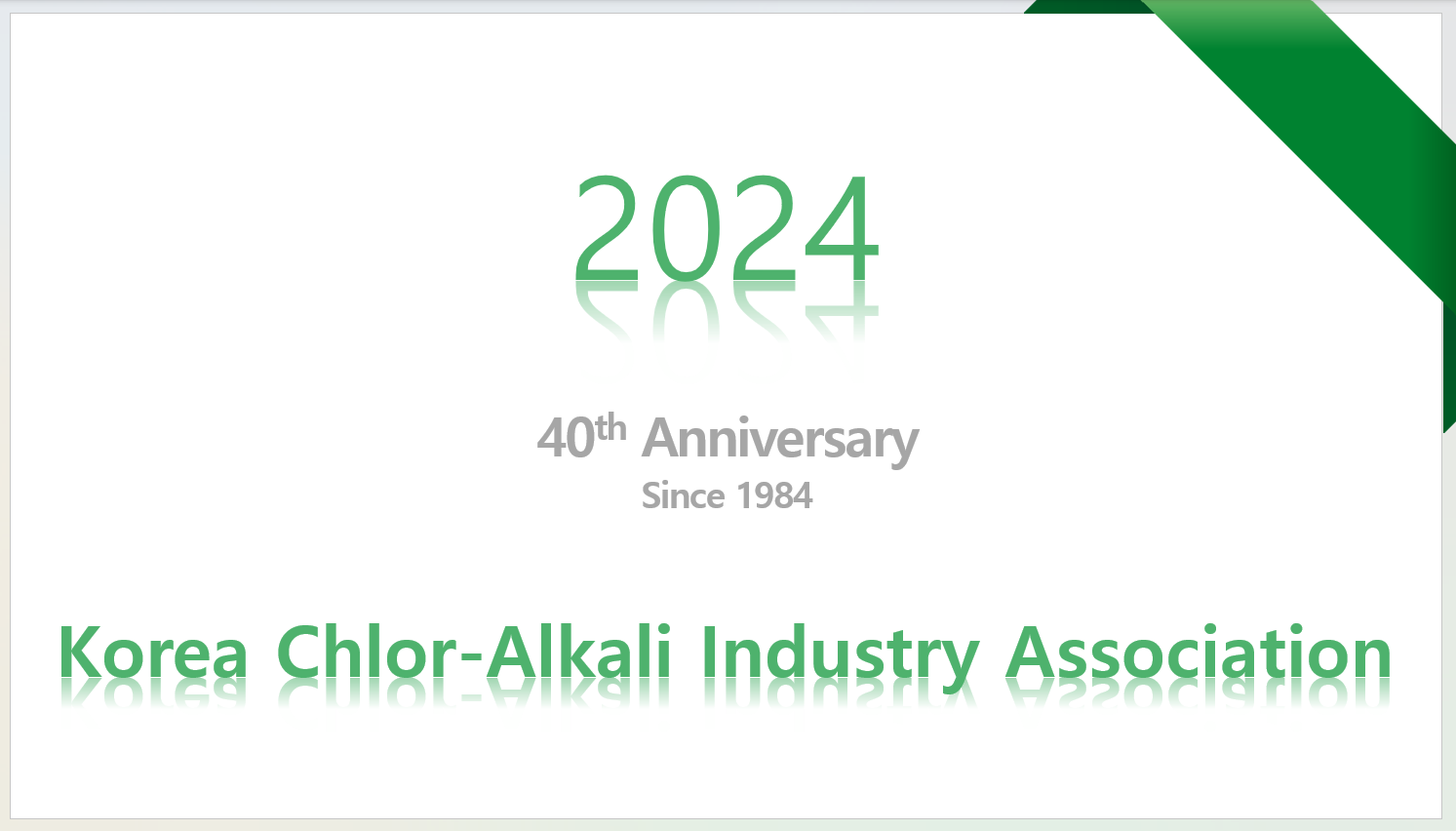Receive Email Updates
The Chlorine Institute (CI) is pleased to announce the release of a series of updated and enhanced Wall Charts, reflecting the latest CI safety recommendations and best practices. These charts have undergone a thorough review cycle, during which many improvements were made to increase their clarity, usefulness, and visual appeal.
As part of this effort, several Wall Charts are now also available in Spanish, expanding access to these important safety resources.
Available Wall Charts (English and Spanish versions)
Coming Soon
Ordering Information
All CI Wall Charts can be ordered through the CI Bookstore in two formats:
To access downloadable files, create a CI user account here:
🔗 Create CI Account
These updated Wall Charts are valuable tools for reinforcing safe handling practices. Whether in English or Spanish, they support CI’s ongoing mission to promote safety and stewardship throughout the chlorine industry.
Initiatives include record participation in the São Paulo Chemistry Olympiad and the distribution of 20,000 educational comics to public schools.
The Brazilian Chlor-Alkali and Derivatives Industry Association (Abiclor), which represents 98% of the country’s industry in this sector, has reinforced its support for education and scientific engagement with two initiatives that reached thousands of students in 2025. The projects aim to foster knowledge about chemistry, public health, and sustainability while encouraging young people to explore science in their academic and professional paths. CLOROSUR (Latin American Chlor-Alkali and Derivatives Industry Association), supports these projects.

Chemistry olympiad gold medalists [image:ABQ-SP]
Chemistry Olympiad
Among them, the Chemistry Olympiad of the State of São Paulo (Olimpíada de Química do Estado de São Paulo -OQSP) registered a record participation of more than 8,200 high school students from public and private schools this year. Sponsored by Abiclor and organized by the Brazilian Chemical Association of São Paulo (ABQ-SP), the competition serves as a gateway to national and international tournaments. It combines theoretical exams with practical activities, lectures, and lab visits, inspiring students to deepen their studies in chemistry and sustainability.
Comic Book
Another highlight is the educational comic book Dr. Cloroville and Álcalis in “Of Course There’s Chlorine” (Dr. Cloroville e Álcalis em “Claro que tem Cloro”), with 20,000 copies distributed to students in seven public schools located near major industrial plants. Written by Marianne Arnone with illustrations by Fabrício de Petta, and carried out by Abiclor in partnership with the Federal Council of Chemistry (CFQ) and executed by Quattro Projetos Culturais, the material introduces students to essential topics such as water treatment, food safety, chemical processes, and household safety. With accessible language, it connects scientific concepts with daily life and strengthens awareness about the safe and beneficial use of chlorine.
“These initiatives reflect Abiclor’s and Clorosur’s commitment to bringing science closer to society,” says Nelson Felipe Junior, interim executive president of Abiclor and Clorosur. “By promoting knowledge, awareness, and opportunities for young people, we inspire their interest in science and chemistry.”
Don’t miss your chance to secure your spot at this must-attend event in Vancouver. Click here for more details!
World Chorine Council (WCC) member the Japan Soda Industry Association (JSIA) has made a Japanese version of the official pamphlet to commemorate the 250th anniversary of Karl Wilhelm Scheele’s discovery of chlorine celebrated by WCC. This pamphlet will be published on the JSIA website. It provides an easy-to-understand introduction to how the discovery of chlorine, which has left its name in the history of chemistry, has contributed to modern society.
On the occasion of this memorable milestone, JSIA will launch a campaign to widely disseminate the social value of chlor-alkali products such as chlorine and caustic soda. The association will also cooperate with member companies to actively encourage the use of this material. This is a great opportunity for more people to know about the power of the products that support our lives, such as medicine, satellites, the environment, and energy.
The slogan will be “The power of chemistry to connect to the future, Discoveries made 250 years ago still support our lives” and JSIA will take this opportunity to spread the appeal of chemistry even more.
Please access the pamphlet 250yaerwcc. For more information, contact wcc.tl@jsia.gr.jp.
The Euro Chlor 12th International Chlor-Alkali Technology Conference & Exhibition was held from 13-15 May in vibrant Barcelona with an impressive turnout of 367 participants from 37 countries.
With the theme of “Chlor-alkali: Achieving Climate Neutrality,” the event held every three years aims to showcase experience and expertise with a rich programme of diverse presentations given by Euro Chlor members, partners, staff, related regional associations and other key industry players alongside a large exhibition of 55 exhibitors. Euro Chlor welcomed participants at booths 64-66 with a broad range of chlor-alkali publications, a display of the Euro Chlor safety game and videos.
The dynamic first day featured three sessions packed with insights and innovation:
Where is European chlor-alkali today?
Moderated by Marleen Pauwels, Euro Chlor Manager, this session set the scene with Jan Nouwen, Chair of the Euro Chlor Management Committee, officially welcoming participants. Richy Mariner, Euro Chlor Science & Regulatory Affairs Director, introduced the overall theme and called on participants to actively contribute to shaping the sector’s climate-neutral future. Thomas Vanfleteren, Euro Chlor Technical & Safety Manager, presented the results from Euro Chlor’s Sustainability Programme and the latest safety initiatives including a newly launched loading and unloading safety video. Finally, Nick Kovics of Chemical Market Analytics delivered an economic overview of the global chlor-vinyls sector.
Innovations in chlor-alkali
Chaired by Thomas Vanfleteren, this technical session showcased innovations from Euro Chlor partners on items such as chlor-alkali electrolyser technology, chlorine storage materials, sulphate removal, concentration and hydrochloric acid systems in addition to information on equipment reuse and recycling.
Using our hydrogen to meet Europe’s ambitions
Led by Eili Skivervik, Euro Chlor Energy & Hydrogen Manager, this session explored the potential and industry readiness of hydrogen in Europe. While Euro Chlor members Bondalti and Nobian gave information on challenges and opportunities and shared lessons learned on hydrogen safety, there was also information on technological innovations for green hydrogen production.
The second and third days delivered deep dives into the key topics of safety, continuous improvements in sustainable production and the future challenges facing the chlor-alkali sector.
Building on lessons learned on safety
Opening the day on Wednesday 14th May, moderator Richy Mariner led the first session dedicated to reinforcing a culture of safety with Euro Chlor partners introducing their systems and processes, followed by Marc Boeckx, Euro Chlor consultant, who outlined the behavioural aspects of safety.
Continuous Improvements in sustainable production
The remainder of this day and start of the third day featured three sessions of 13 technical presentations chaired by Thomas Vanfleteren. This session highlighted advances in decarbonisation, efficiency and sustainable grown. Presentations were also given by Euro Chlor’s US and Chinese partners on decarbonisation and sustainable development in other global regions. Euro Chlor partners enthusiastically presented their respective developments in this important area.
Where will European chlor-alkali be tomorrow?
In the final session chaired by Marleen Pauwels, attention turned to the future of the sector. There was insight into trends and challenges in the chlor-alkali service industry, as well as a special briefing on PFAS from Cefic. Marleen Pauwels concluded the event with a summary that captured the energy, innovation, and collaborative spirit of the entire three days.
See more details at https://eurochlor2025.org or contact eurochlor@cefic.be for any further information.
Take a look here at WCC’s new publication celebrating 250 years of improving lives with chlor-alkali chemistry to see the biggest milestones from the 18th century onwards. This new resource also features four of the WCC main goals of Communications, Engagement, Safety and Sustainability.
Contact worldchlorinecountil@gmail.com if you need any more details about WCC.
Click on http://worldchlorine.org/publications to download our stylized PDF.
To celebrate the birthday of Karl Wilhelm Scheele today 19th December, the World Chlorine Council (WCC) is sharing how chlor-alkali chemistry has been improving our lives in the 250 years since Scheele discovered chlorine in 1774. Read more below or click on http://worldchlorine.org/about/250_years.
Karl Wilhelm Scheele’s discovery of chlorine represents a significant milestone in the history of chemistry. Together with its co-products sodium/ potassium hydroxide (caustic soda/ potash) and hydrogen (collectively known as chlor-alkali), this basic chemistry is the foundation of a modern industry, shaping products and technologies that have contributed to public health, industrial growth, and sustainability.
18th Century
Chlorine is discovered: Karl Wilhelm Scheele discovers chlorine
19th century
Large-scale alkali production processes are developed.
19th – 20th century
Chlorine plays a key role in water sanitation, revolutionizing public health through the reduction of waterborne diseases.
20th century
Innovative applications for chlor-alkali expand.
21st Century
Chlor-alkali is a major contributor to sustainable solutions.
Who is working to make these advancements a reality? The World Chlorine Council (WCC) and its regional membership. Founded in the early 1990s by the US and Europe associations, WCC is a global chlor-alkali network bringing together six regional associations, all founded in just over 100 years.
Safety
Communication
Sustainability
Engagement
On 18 November, WCC held its Annual Safety Webinar for around 60 participants in a 90-minute online session focusing on essential safety practices for the global chlorine industry. The event featured three expert speakers who shared their insights into a Loss of Primary Containment (LoPC) Improvement Program, a Cognitive Readiness Project for plant workers and addressing Chlorine Hydrate Issues.
Access the presentation here and contact Thomas Vanfleteren for more information.
Chlor-alkali chemistry is essential to help achieve many of the United Nation’s Sustainable Development Goals (SDGs). The 17 SDGs are at the heart of global efforts to build a better world for people and our planet by 2030. Adopted by all United Nations Member States in 2015, the SDGs are a call for action by all countries to promote prosperity whilst protecting the environment. As such, the World Chlorine Council (WCC), has prepared its 2024 Sustainability Progress Report that details how its members, and chlor-alkali chemistry in general, help to meet these important targets.
The new report discusses which SDGs are supported by chlor-alkali (chlorine and caustic soda/ potash) chemistry and further details can also be found at https://worldchlorine.org/sustainability/.
The WCC brings chlor-alkali experts together from around the globe to discuss, partner, and further global progress toward sustainability and achieve the SDGs, among many other topics.
The Korea Chlor Alkali Industry Association (KCAIA), founded in March 1984, held a ceremony to celebrate its 40th anniversary earlier this year (in February 2024). About 25 people, including former KCAIA Chairmen and Directors and officials of member companies, attended this ceremony. A video was played that looks at the origin of the Korean chlor-alkali industry, which included greetings from former and current Chairmen and executives. In addition, pamphlets outlining the history of the Korea chlor-alkali industry, were distributed to the member companies.
The Korean chlor-alkali industry began in 1958 with the operating of the first electrolyser with a capacity of 1.5 tonnes per day. Since then, it has played a role in supplying basic materials for industries such as textiles, petrochemicals, construction, automobiles, shipbuilding, and electronics for Korea’s remarkable economic growth. Since 2000, the Korean chlor-alkali industry has expanded and developed and is expected to continue to grow in the future in line with the development of industries such as new and renewable energy, AI, and electric vehicles. For more information, contact Colin Ji, KCAIA Director.
